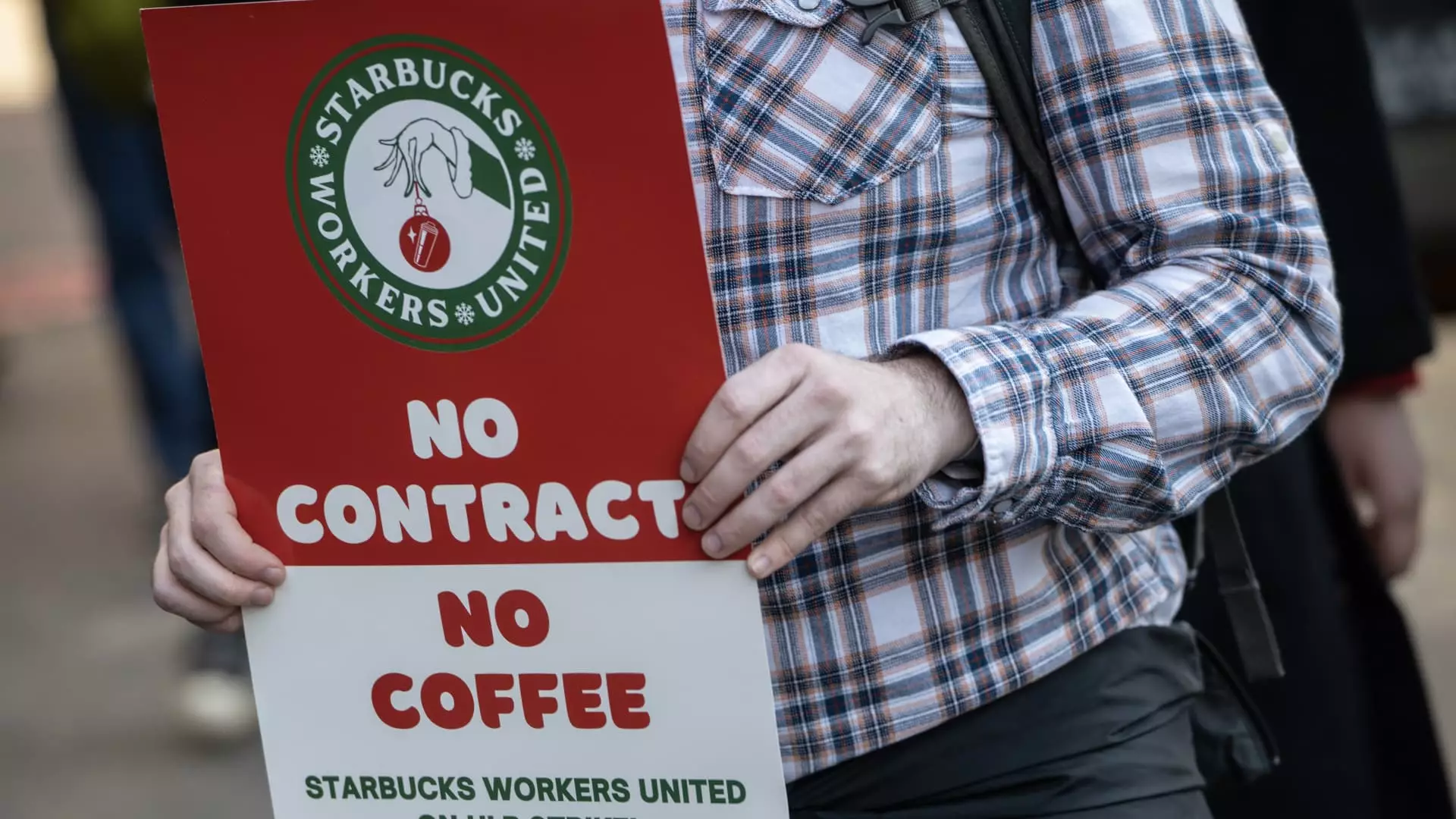As the holiday season approaches, Starbucks baristas in several major cities—including Los Angeles, Chicago, and Seattle—are preparing to initiate strikes that will stretch through Christmas Eve. The strikes, organized by Starbucks Workers United, aim to confront the company over compensation issues, amidst claims that Starbucks is reneging on promises made earlier regarding employee pay and benefits. The union’s announcement reflects a critical moment in labor relations, as baristas express their frustrations with both the company’s management and the ongoing struggle for fair wages in light of the current economic landscape.
Recent negotiations between Starbucks and the union represent a complex relationship that has seen both collaboration and contention. Earlier this year, the two parties appeared on a path of cooperation, reaching a “foundational framework” intended to guide discussions towards collective bargaining agreements for individual stores. However, following a series of bargaining sessions—more than nine in just twenty days—the mood has soured significantly. The union’s frustration boiled over when, after the last scheduled session of the year, it prompted a vote that authorized strikes if the company failed to present a satisfactory proposal addressing wage increases and benefits.
Impact on Holiday Shoppers
With the planned strikes coinciding with the peak shopping season, many consumers could face inconveniences as they seek their favorite seasonal beverages and gifts from Starbucks. The strikes, which promise to escalate each day, could increase wait times and diminish service quality during one of the busiest periods of the year. This timing underscores the strategic nature of the union’s actions, as they seek to amplify visibility for their cause during a peak consumer period when the stakes are high for both the company and its employees.
Starbucks has responded to the union’s demands by stating that it is prepared to continue negotiations. However, the company’s proposals of minimal pay increases—such as a mere 1.5% annual raise—have not met the union’s bold call for immediate hourly wage increases of 64% and a total of 77% over a three-year contract. This disparity in expectations highlights the widening gap between corporate ambitions and worker realities amidst a backdrop of declining sales both globally and in the U.S. market. As consumers increasingly explore alternatives, Starbucks faces the dual challenge of rejuvenating its sales while also managing internal labor relations.
Importantly, the struggles faced by Starbucks baristas are not isolated. Other workers, including Amazon employees at multiple facilities, have also initiated strikes, highlighting a national trend of workers demanding better wages and working conditions across various industries. This wave of labor activism signals a potentially transformative moment in American work culture as more employees feel empowered to voice their concerns and seek collective action. As the holidays unfold, the resolution of these labor disputes remains critical, not only for the workers involved but also for consumers navigating a changing retail landscape.

Leave a Reply